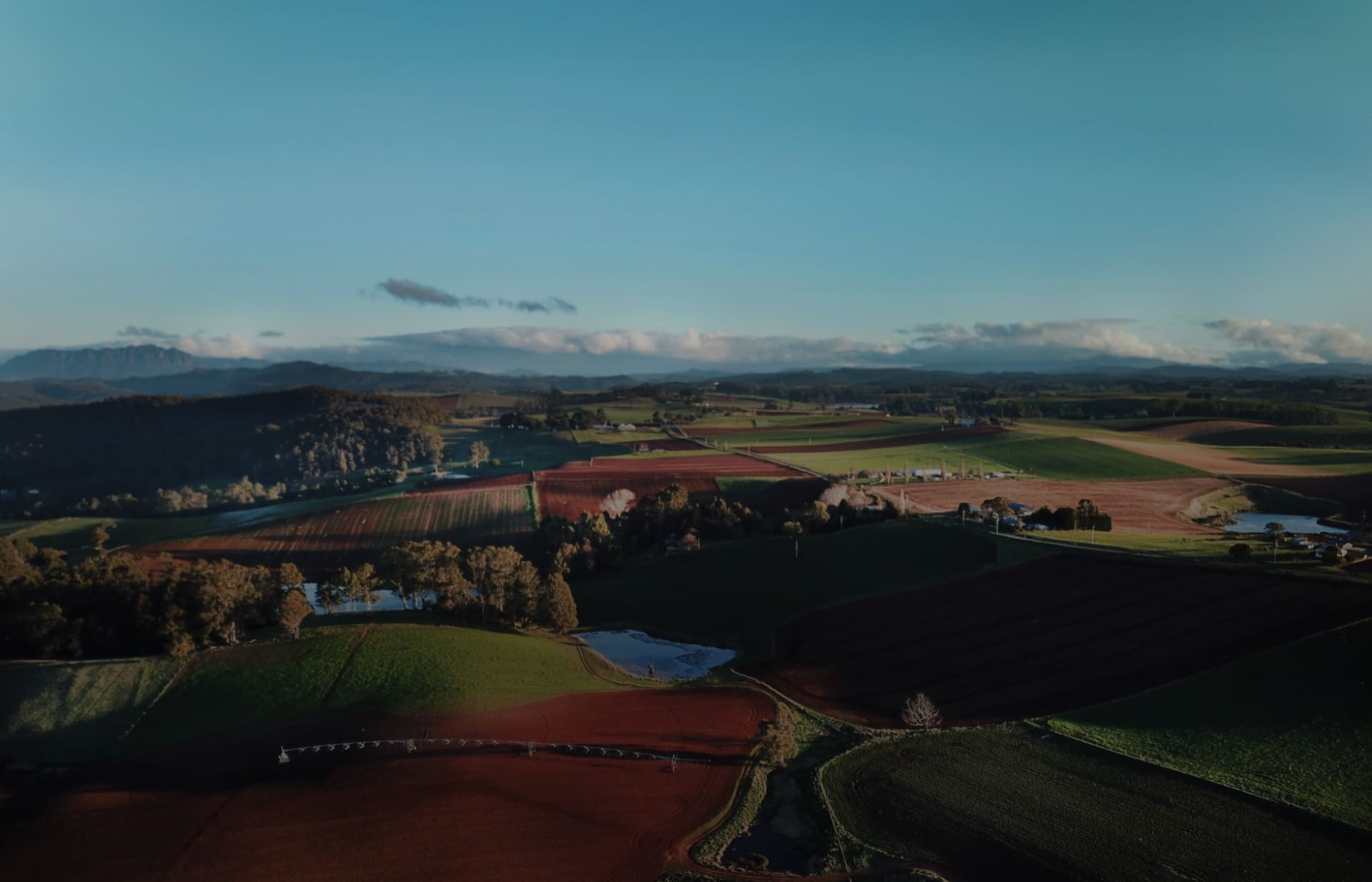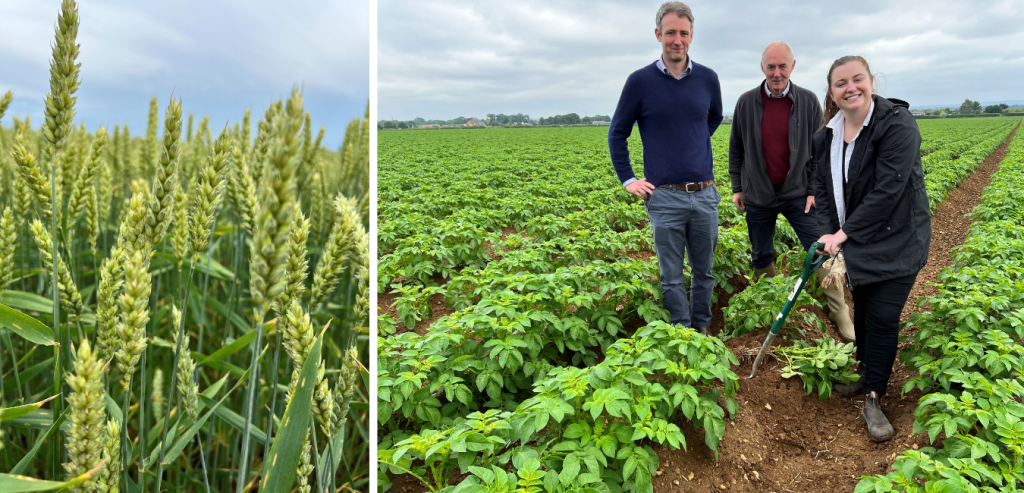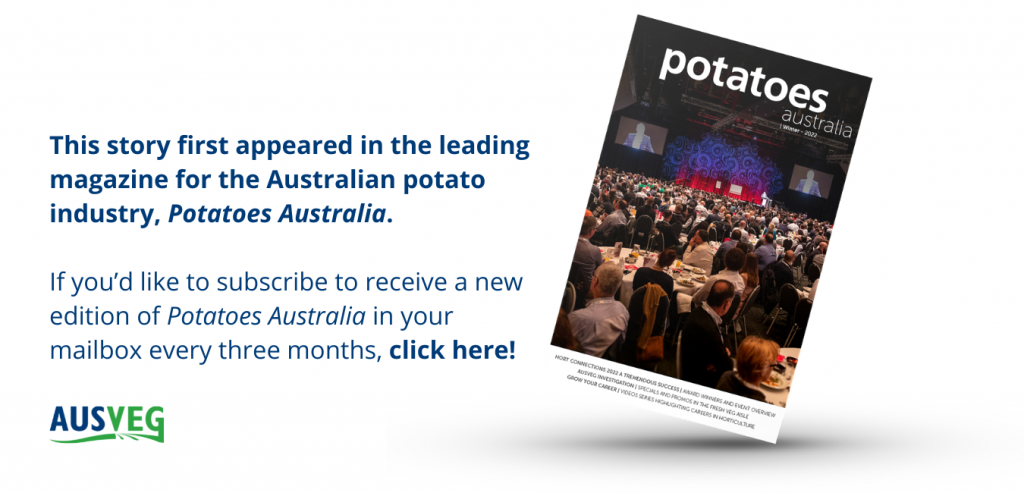Potato trade update: Slight increase in frozen potato imports after fall in 2021
Accelerating the adoption of best management practices for the Australian onion industry (Australian Onion Industry Communications)
Fact sheet: Clubroot management in brassicas
Growing brave: Call for horticulture to reclaim its value
New engagement hub on fall armyworm R,D&E for hort
Latest edition of Potatoes Australia and PotatoLink – now online
Next call-out for Hort Innovation events sponsorship program 2022
AWM webinar: In control – managing capsicum viruses for profitable vegetable production
Attending the International Farm Management Congress in Scandinavia, held from 26 June to 1 July 2022 has completely changed Ruby Daly’s outlook on farming in her little pocket on the southeast coast of Tasmania. Ruby Daly reports on her experience.
The two words that were very foreign to me were co-ops and subsidies. Farmers in Scandinavia receive a great deal of assistance from their governments. Also, they receive incentives to become more climate-focused in their farming practices.
Norway and Sweden
After starting the pre-tour in Bergen, Norway, where we meet around thirty other industry people from around the world, we jumped on a bus and started heading around farms close by.
The one thing that stood out to me was the fact that Norway’s farming land is small, but they use every piece of land they have. This is one lesson I believe we can learn from Norwegian people – to utilise every acre we have available to us in Tasmania.
After a couple of days in Norway we crossed the border into Sweden where farming seemed different. We visited so many different farming styles, from three brothers farming 530ha of land to a vineyard in Sweden that must manage with snow on the vineyard.
What motivated me was their passion to make the most of what they had and then pass their business onto the next generation – for as many as fourteen generations.
Current Generation Farmers
But the highlight of this experience was meeting fourteen current generation farmers from all over the world with completely different farming background and issues but we all found out that no matter how big or small we each farmed our problems and issues are, largely, the same.
These amazing people from all over the world have inspired me to try bringing more of the current generation into the farming world.
We all thought that the phrase ‘next gen’ did not suit our working group; in fact, we are the current generation of farming. I am inspired to help set up a peer support group for our next generation which helps us expand with professional development opportunities in the agriculture industry.
Professional growth and development should be readily available for our next generation farmers, but at the current time there’s very little with which we can support each other in a productive social interaction. I strongly believe this will play a huge part in ensuring we make a positive impact on our mental health and well-being into the future.
Next Gen workshop
At the end of the weekend, for the next gen workshop, our task was to develop a strategy for a Swedish dairy farmer who needed to turn his profit around. Although we were all in diverse groups, we all came to the same conclusions:
- You need to understand the current risks to your business.
- Having a strong leadership with clearly defined roles and responsibility for the future.
- Have a clear plan and review it every 12 months.
- You can farm with your heart, but you must run your farm as a business first.
But my best tip was from an American farmer Jay Smith. His words have really rang true with me and I hope others can experience the same as I did. “Being a farmer is fun, but Ag travel is the most important part of farming”.
This is so true; I have been completely overwhelmed with information and data to try and digest within our business, but I have never been more motivated to come home and share all my experiences to help inspire the current generation of farmers to see how they farm around the world.
The IFMA Congress will be in Saskatoon in Canada in July 2024, and I encourage young farmers to take the opportunity to see and learn how others farm around the world.
To find out more, visit ifma.network



